Home>diy>Building & Construction>How Do You Become A Construction Superintendent
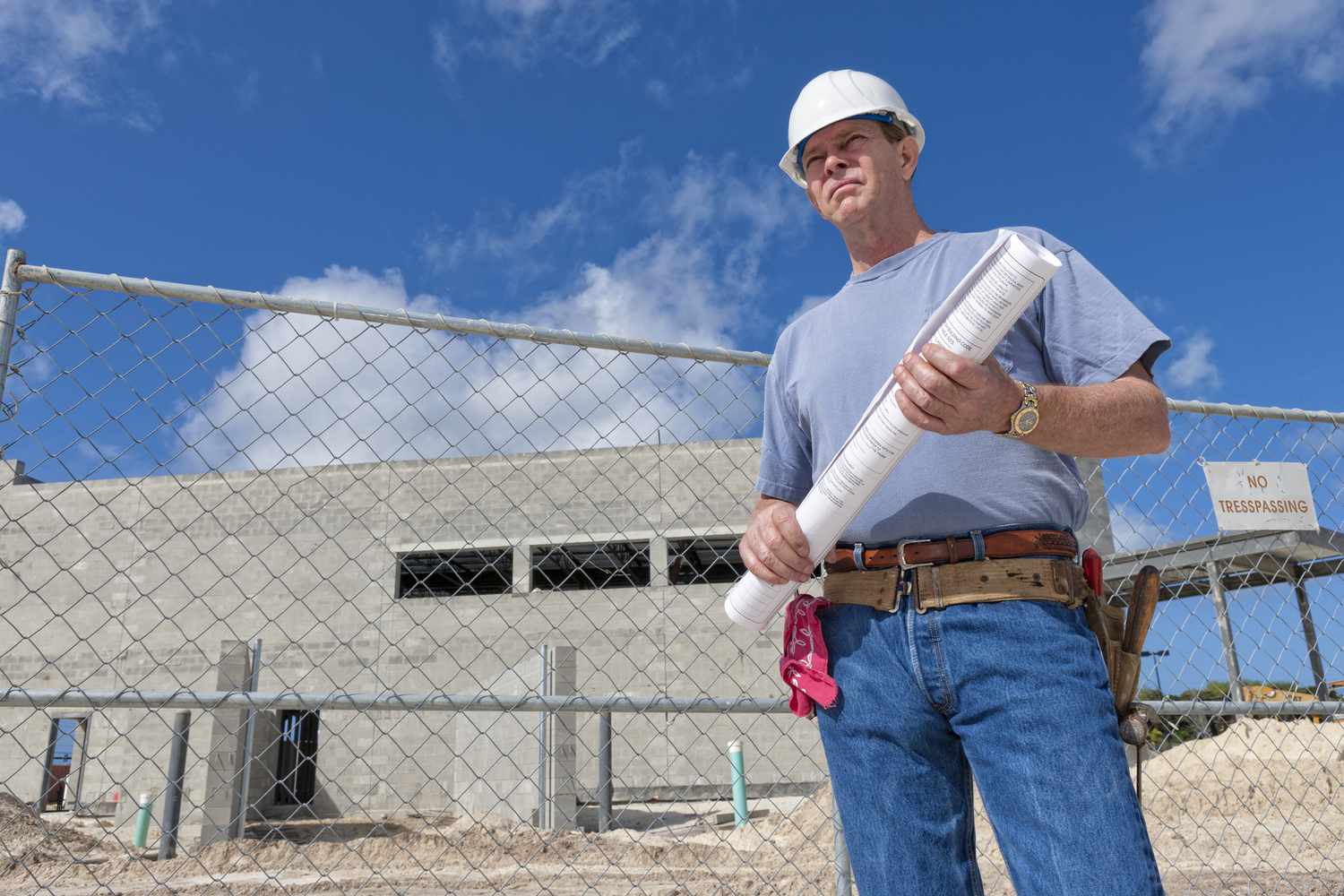

Building & Construction
How Do You Become A Construction Superintendent
Modified: March 6, 2024
Learn the steps to become a construction superintendent in the building-construction industry. From gaining experience to obtaining the necessary qualifications, we have the guide you need.
(Many of the links in this article redirect to a specific reviewed product. Your purchase of these products through affiliate links helps to generate commission for Storables.com, at no extra cost. Learn more)
Introduction
Welcome to the exciting world of construction! If you have a passion for building and want to take your career to the next level, becoming a construction superintendent may be the perfect fit for you. As a construction superintendent, you will be responsible for overseeing the execution of construction projects, ensuring they are completed on time, within budget, and up to the highest quality standards.
In this article, we will explore the path to becoming a construction superintendent, including the necessary education, training, and experience required to excel in this role. We will discuss the responsibilities of a construction superintendent, the skills and certifications needed, and the steps you can take to reach this coveted position.
A construction superintendent plays a crucial role in the construction industry. They are the ones who bring the plans to life, manage the construction team, and coordinate with various stakeholders to ensure a project’s successful completion. Their expertise is vital in ensuring that projects are carried out efficiently, safely, and in compliance with all relevant regulations and codes.
As a construction superintendent, you will oversee and coordinate construction activities, including scheduling, budgeting, and resource allocation. You will be responsible for managing the construction team, ensuring that they have the necessary tools and materials to carry out their tasks effectively. Additionally, you will monitor the progress of the construction project, promptly address any issues or delays that arise, and ensure that the project meets its objectives.
A successful construction superintendent must possess a diverse set of skills. Strong leadership abilities, excellent communication and organizational skills, and the ability to problem solve and make decisions under pressure are vital. Attention to detail, time management, and the ability to manage multiple tasks simultaneously are also essential qualities for a construction superintendent.
Education and experience play key roles in becoming a construction superintendent. While there is no specific degree requirement for this position, a high school diploma or equivalent is typically required. However, many construction superintendents pursue further education or training programs to enhance their knowledge and skills. Professional certifications related to construction management or specific areas of expertise can also give candidates a competitive edge in the job market.
In the following sections, we will discuss the necessary steps to become a construction superintendent in more detail. We will outline the education and training options, as well as the certifications that can help you stand out in this field. We will also explore the importance of gaining construction industry experience and building a strong network in the industry.
So, if you are ready to embark on an exciting and rewarding career in construction, let’s dive in and explore the path to becoming a construction superintendent!
Key Takeaways:
- Becoming a construction superintendent requires a high school diploma, hands-on experience, and continuous learning through education, certifications, and networking. It’s a rewarding journey that combines practical skills with dedication.
- To excel as a construction superintendent, aspiring professionals should focus on gaining industry experience, pursuing higher education or training, acquiring relevant certifications, building a strong network, and seeking leadership opportunities.
Responsibilities of a Construction Superintendent
As a construction superintendent, you will have a wide range of responsibilities to ensure the successful execution of construction projects. Your role will involve overseeing various aspects of the construction process, from planning and scheduling to managing the on-site construction team. Here are some of the key responsibilities of a construction superintendent:
- Project Planning: One of the primary responsibilities of a construction superintendent is to develop a detailed project plan. This includes creating a construction schedule, determining the necessary resources, and coordinating with architects, engineers, and other stakeholders to ensure that the project objectives are met.
- Team Management: As a construction superintendent, you will be responsible for managing the on-site construction team. This includes overseeing the work of subcontractors, ensuring that they adhere to safety protocols and quality standards. You will also be responsible for assigning tasks, coordinating work schedules, and resolving any conflicts or issues that may arise among the team members.
- Quality Control: Ensuring the quality of construction is a crucial responsibility of a construction superintendent. You will be responsible for conducting regular inspections of the construction site to ensure that work is being carried out according to approved plans and specifications. You will also be responsible for addressing any quality issues promptly and ensuring that they are resolved to maintain the project’s high standards.
- Cost Management: Managing the project budget is another important responsibility of a construction superintendent. You will be responsible for monitoring project costs, tracking expenses, and making adjustments to ensure that the project remains within budget. This includes reviewing and approving invoices, negotiating prices with suppliers, and identifying cost-saving opportunities without compromising on quality.
- Safety Compliance: Safety is of utmost importance in the construction industry, and as a construction superintendent, you will be responsible for ensuring that safety protocols are followed at all times. This includes conducting regular safety meetings, providing the necessary safety training to the construction team, and enforcing safety regulations to prevent accidents or injuries on the job site.
- Communication: Effective communication is key to the success of any construction project. As a construction superintendent, you will be responsible for maintaining open and clear communication channels with all stakeholders, including the project owner, architects, engineers, subcontractors, and team members. You will be the point of contact for any project-related queries, updates, or issues and will need to ensure that information is shared promptly and accurately.
- Problem Solving: Construction projects often encounter unexpected challenges and issues. As a construction superintendent, you will need to be skilled in problem-solving and finding innovative solutions to overcome obstacles. This may involve coordinating with different parties, analyzing options, and making informed decisions to keep the project on track.
These responsibilities require strong leadership skills, effective time management, and the ability to multitask. It is essential to stay organized, adaptable, and detail-oriented to ensure that all project requirements are fulfilled and that the construction process is efficient and successful.
Now that we have gained insight into the responsibilities of a construction superintendent, let’s move on to explore the necessary education, training, and experience required to excel in this role.
Education and Training
While there is no specific degree requirement to become a construction superintendent, a solid educational foundation is essential to excel in this role. Let’s explore the education and training options that can help you on your journey to becoming a construction superintendent:
High School Diploma or Equivalent: The minimum educational requirement to enter the construction industry is a high school diploma or equivalent. This provides a basic level of education and demonstrates your ability to learn and follow instructions. It is important to have a strong understanding of mathematics, reading comprehension, and basic technical skills, as these are fundamental in the construction field.
Construction Management Degree: While not mandatory, a degree in construction management or a related field can provide a comprehensive understanding of construction principles, project management, and industry practices. A bachelor’s degree in construction management can give you a competitive advantage and equip you with the knowledge needed to excel as a construction superintendent. Some universities and colleges also offer associate degrees or certificate programs in construction management, which can be pursued as a more affordable and time-efficient option.
Training Programs: In addition to formal education, there are various training programs available that focus on specific areas of construction and can enhance your skills and knowledge. These programs may cover topics such as construction technology, blueprint reading, cost estimating, project scheduling, and construction laws and regulations. Explore local trade schools, vocational programs, and industry associations to find training programs that align with your career goals.
Industry Certifications: Obtaining industry-recognized certifications can demonstrate your expertise and dedication to the construction field. Some notable certifications for construction superintendents include the Certified Construction Manager (CCM) certification offered by the Construction Management Association of America (CMAA) and the Certified Professional Constructor (CPC) certification offered by the American Institute of Constructors (AIC). These certifications typically require meeting specific education and experience requirements and passing an examination.
Continuing Education: Construction is an ever-evolving industry, and it is crucial to stay updated with the latest trends, technologies, and regulatory changes. Engaging in continuing education programs, attending industry conferences and workshops, and seeking professional development opportunities will help you stay current and expand your knowledge base.
A combination of education and practical experience is highly valued in the construction industry. While formal education can provide a theoretical understanding of the industry, hands-on experience is invaluable in developing the skills necessary to excel as a construction superintendent. Let’s take a closer look at the experience and skills needed to succeed in this role.
Experience and Skills Needed
Experience is a crucial component in becoming a successful construction superintendent. Gaining practical experience in the construction industry will not only allow you to develop the necessary skills but also provide you with insights into the various aspects of construction projects. Let’s explore the experience and skills needed to thrive as a construction superintendent:
Construction Industry Experience: Prior experience in the construction industry is highly beneficial in becoming a construction superintendent. Working in different roles, such as a carpenter, electrician, plumber, or general laborer, allows you to gain hands-on experience and develop a deep understanding of construction practices, techniques, and challenges. This experience will give you a valuable perspective when overseeing and managing construction projects.
Leadership and Management Skills: As a construction superintendent, you will be responsible for leading and managing a diverse team of construction professionals. Strong leadership skills, including the ability to motivate and inspire team members, establish clear goals, and effectively delegate tasks, are essential. Additionally, excellent management skills, such as organization, problem-solving, decision-making, and conflict resolution, are critical to successfully overseeing construction projects.
Communication and Collaboration: Effective communication is crucial in the construction industry, where various stakeholders and team members need to coordinate and collaborate. A construction superintendent must have strong verbal and written communication skills to convey instructions, address concerns, and foster effective teamwork. The ability to collaborate and build positive relationships with architects, engineers, subcontractors, and team members is also vital for successful project execution.
Technical Knowledge: A comprehensive understanding of construction principles, techniques, and best practices is necessary for a construction superintendent. This includes knowledge of building codes, regulations, and safety protocols. Familiarity with construction software and technologies, such as project management software, building information modeling (BIM), and scheduling tools, is also beneficial and can streamline project management processes.
Problem-Solving Abilities: Construction projects are complex and often encounter unforeseen challenges. The ability to think critically, analyze problems, and develop innovative solutions is indispensable for a construction superintendent. Being able to adapt to unexpected situations and make informed decisions promptly is vital to keep construction projects on track and overcome obstacles.
Attention to Detail and Time Management: Construction projects have numerous moving parts, and a construction superintendent must have exceptional attention to detail and the ability to manage multiple tasks simultaneously. This includes effectively managing time, prioritizing tasks, and ensuring that deadlines are met. Meticulous attention to quality control and adherence to project specifications is crucial to deliver successful construction projects.
Construction Superintendent Training Programs: Various training programs and workshops specifically designed for construction superintendents are available. These programs focus on honing the skills needed to excel in the role, such as leadership, project management, and job site safety. Participating in these training programs can further enhance your skills and knowledge as a construction superintendent.
By gaining industry experience and developing these essential skills, you will be well-equipped to take on the responsibilities of a construction superintendent. The next step is to understand the steps needed to become a construction superintendent. Let’s explore these steps in more detail.
Steps to Become a Construction Superintendent
Becoming a construction superintendent requires a combination of education, experience, and dedication. Here are the essential steps to follow to embark on a successful career as a construction superintendent:
- Obtain a High School Diploma or Equivalent: The first step towards becoming a construction superintendent is to complete a high school diploma or obtain an equivalent qualification. A strong educational foundation is essential for further career advancement.
- Gain Construction Industry Experience: To excel as a construction superintendent, it is crucial to gain practical experience in the construction industry. Consider starting as a construction laborer or entry-level tradesperson to familiarize yourself with construction practices and build a strong foundation of knowledge.
- Pursue Higher Education or Training Programs: While not mandatory, pursuing higher education or training programs can provide a distinct advantage in this field. Consider earning a degree in construction management or a related field to gain comprehensive knowledge of construction principles, management techniques, and industry practices. Alternatively, explore vocational training programs that offer specialized certifications focused on construction management.
- Acquire Relevant Certifications: Industry-recognized certifications can significantly enhance your credentials as a construction superintendent. Look for certifications such as the Certified Construction Manager (CCM) or the Certified Professional Constructor (CPC) to validate your skills and knowledge. These certifications often require a combination of education and experience, along with successfully passing an examination.
- Build a Strong Construction Network: Networking is crucial for career growth in the construction industry. Connect with professionals in the field, attend industry events, and join trade organizations and associations. Building a robust network can provide opportunities for mentorship, job referrals, and staying updated with the latest industry trends and innovations.
- Consider Apprenticeships or Internships: Apprenticeships and internships offer valuable hands-on experience and mentorship opportunities. Look for apprenticeship programs offered by trade unions or construction organizations, as well as internships with construction companies or contractors. These experiences can provide you with practical skills and professional connections that will pave the way for a successful career as a construction superintendent.
- Climbing the Career Ladder: Once you have gained experience as a construction professional, look for opportunities to advance your career. Seek supervisory roles on construction sites, such as foreman or assistant superintendent, to develop your leadership skills and further expand your construction knowledge. Prove your abilities and dedication through successful project management and effective team management to progress to the position of a construction superintendent.
It is important to note that becoming a construction superintendent requires continuous learning and development. Stay updated with industry trends, regulations, and advancements in construction technology. Pursue further professional development opportunities, attend workshops and seminars, and consider advanced certifications to stay ahead in this ever-evolving field.
By following these steps and constantly striving for growth, you can navigate a successful path towards becoming a construction superintendent. Embrace the challenges and opportunities that come with the role, and continue to build your skills and knowledge to thrive in this dynamic industry.
Now that you have a clear roadmap to becoming a construction superintendent, it’s time to take action and embark on an exciting and rewarding career in construction management!
Read more: What Is A Construction Superintendent
Obtain a High School Diploma or Equivalent
The first step on the path to becoming a construction superintendent is to obtain a high school diploma or an equivalent qualification. A high school diploma is the minimum educational requirement in the construction industry and serves as the foundation for further education and career advancement.
While specific coursework may vary depending on the school and curriculum, it is important to focus on subjects that will provide a strong academic base for a career in construction. Mathematics, including geometry and algebra, is fundamental for understanding construction calculations, measurements, and blueprints. Courses in sciences, such as physics and chemistry, can offer insights into the principles of structural stability and material properties. English and communication classes are essential for developing effective written and verbal communication skills, which are vital in the construction industry.
In addition to academic subjects, it is also beneficial to participate in extracurricular activities that foster skills related to construction, such as woodworking, drafting, or construction trades. These activities can provide hands-on experiences and valuable insights into the practical aspects of the construction process.
If you have not obtained a high school diploma, alternative options such as the General Educational Development (GED) certificate can be pursued. The GED program allows individuals to demonstrate their knowledge and skills equivalent to a high school graduate, and successfully passing the GED exam will provide the necessary credentials for further education and career opportunities.
Obtaining a high school diploma or equivalent qualification is the first step towards a career in the construction industry. It provides a solid educational foundation and demonstrates your ability to learn and follow instructions, which are crucial skills in the construction field.
Once you have obtained your high school diploma or equivalent, you can move on to gaining practical construction industry experience and pursuing further education or training programs to enhance your knowledge and skills. The next step is to gain construction industry experience, which we will explore in the next section.
Gain Construction Industry Experience
After obtaining a high school diploma or equivalent qualification, the next important step in becoming a construction superintendent is gaining practical experience in the construction industry. Building hands-on experience is invaluable in developing a deep understanding of construction practices, techniques, and challenges, which are essential for success in this role.
One of the best ways to gain construction industry experience is to start working in entry-level positions within the construction field. Consider starting as a construction laborer or an apprentice in a particular trade, such as carpentry, plumbing, electrical work, or masonry. These roles will allow you to learn the basics of construction, familiarize yourself with different tools and materials, and gain an understanding of construction processes and safety practices.
Working alongside experienced professionals in the construction industry will provide you with practical insights and the opportunity to observe firsthand how projects are executed. Pay attention to the details and ask questions to expand your knowledge and expertise. Developing a strong work ethic, attention to detail, and a willingness to learn and take on new challenges will help you stand out and grow in your construction career.
As you gain experience in entry-level positions, seek opportunities for growth and advancement within your company or in other construction firms. Look for positions that provide exposure to project management responsibilities or involve working in a supervisory capacity. These roles will help you acquire important leadership and management skills while building a solid understanding of the construction industry from a higher level perspective.
Additionally, consider volunteering for construction-focused organizations or participating in community projects that involve construction work. These opportunities can provide additional hands-on experience, expand your network within the industry, and showcase your dedication and passion for the field.
Remember, gaining construction industry experience is a gradual process that involves continuous learning and growth. The more experience you accumulate, the better equipped you will be to take on the responsibilities of a construction superintendent. Aim to work on a variety of projects, ranging in size and complexity, to gain exposure to different construction methods and practices.
Building a strong foundation of construction industry experience will serve as a launching pad for your career advancement. It will equip you with the practical skills, knowledge, and confidence needed to move on to higher levels of responsibility. The next step is to consider pursuing higher education or training programs to further enhance your capabilities as a construction superintendent, which we will explore in the next section.
To become a construction superintendent, gain experience in construction, obtain a bachelor’s degree in construction management or related field, and pursue certifications such as the Certified Construction Manager (CCM) or the Associate Constructor (AC) designation.
Pursue Higher Education or Training Programs
While not mandatory, pursuing higher education or training programs can provide a significant advantage in becoming a construction superintendent. These educational opportunities can enhance your knowledge, skills, and overall understanding of construction management principles, project execution, and industry best practices.
One option is to pursue a degree in construction management or a related field. Many colleges and universities offer bachelor’s or associate’s degrees in construction management, providing a comprehensive curriculum that covers various aspects of construction project planning, scheduling, cost estimation, and construction law. These programs typically offer coursework in areas such as construction technology, contract administration, project management, safety management, and sustainable construction practices.
During your studies, you will have the opportunity to learn and apply construction management software, understand building codes and regulations, and gain a deeper understanding of construction documentation, such as blueprints and specifications. You will also develop critical-thinking and problem-solving skills necessary to navigate complex construction projects.
Alternatively, if formal degree programs are not an option for you, consider enrolling in vocational training programs or professional development courses specific to construction management. These programs often focus on practical skills and provide training in areas such as project scheduling, cost estimating, construction documentation, and construction safety. Trade schools and technical institutes typically offer these types of programs, and they can provide valuable knowledge and skills in a shorter time frame.
In addition to formal education, consider participating in industry-specific training programs and workshops. These programs can provide specialized knowledge in areas like green building practices, LEED certification, building information modeling (BIM), or construction contract management. These certifications and training courses can enhance your qualifications, make you a more desirable candidate, and broaden your career opportunities as a construction superintendent.
Continuing education is also essential to stay current with industry trends and advancements. Ongoing professional development programs, industry conferences, and seminars will allow you to expand your knowledge base, learn about new construction technologies and practices, and network with industry professionals. Keeping up-to-date with the latest developments in the construction industry will give you a competitive edge and demonstrate your commitment to continuous improvement.
Choosing to pursue higher education or training programs in construction management demonstrates your dedication to the field and offers avenues for personal and professional growth. These educational experiences will provide you with the necessary tools, theoretical knowledge, and practical skills to excel as a construction superintendent. The next step is to consider acquiring relevant certifications to further enhance your qualifications, which we will explore in the following section.
Acquire Relevant Certifications
Acquiring relevant certifications is a valuable way to enhance your qualifications and demonstrate your expertise as a construction superintendent. These certifications validate your knowledge and skills in specific areas of construction management, project execution, and industry best practices. Here are some certifications to consider:
Certified Construction Manager (CCM): Offered by the Construction Management Association of America (CMAA), the CCM certification is widely recognized and respected in the construction industry. To obtain this certification, you must meet specific education and experience requirements and pass an examination that covers various construction management topics, including project planning, scheduling, cost control, and construction law.
Associate Constructor (AC) and Certified Professional Constructor (CPC): Offered by the American Institute of Constructors (AIC), the AC and CPC certifications are designed to validate your proficiency in construction project management. The AC certification is for entry-level professionals, while the CPC is for those with established experience and knowledge. These certifications require meeting specific education and experience requirements and successfully passing an examination.
LEED Accredited Professional (LEED AP): This certification is particularly valuable for construction professionals involved in sustainable building practices. Offered by the U.S. Green Building Council (USGBC), the LEED AP certification demonstrates your knowledge of green building principles and practices. It requires passing an exam that covers topics such as energy efficiency, water conservation, indoor air quality, and sustainable materials.
Construction Risk and Insurance Specialist (CRIS): Offered by the International Risk Management Institute (IRMI), the CRIS certification focuses on construction risk management and insurance. By obtaining this certification, you showcase your understanding of construction insurance policies, risk analysis, and contract insurance requirements.
Occupational Safety and Health Administration (OSHA) Certifications: OSHA offers various certifications related to construction safety, such as the OSHA 10-Hour Construction Industry certification and the OSHA 30-Hour Construction Industry certification. These certifications demonstrate your knowledge of construction safety regulations and your commitment to maintaining a safe work environment on construction sites.
These are just a few examples of certifications available in the construction industry. It is important to research and choose certifications that align with your interests and career goals. Consider the requirements, relevance, and industry recognition of each certification before pursuing them. Some certifications may require a combination of education, experience, and passing an examination, while others may have specific prerequisites.
Obtaining certifications not only demonstrates your expertise in specific areas of construction management but also sets you apart from other candidates and increases your marketability as a construction superintendent. Employers often value certified professionals, as they bring added credibility and proficiency to construction projects.
Keep in mind that certifications require continuous learning and may have renewal or continuing education requirements to ensure that professionals stay up-to-date with industry standards and best practices. By acquiring relevant certifications and maintaining them throughout your career, you demonstrate your dedication to ongoing professional development and continuous improvement as a construction superintendent.
The next step is to build a strong network in the construction industry, which we will explore in the following section.
Build a Strong Construction Network
Building a strong network within the construction industry is crucial for career growth and success as a construction superintendent. A robust network can provide valuable connections, mentorship opportunities, career advice, and access to job opportunities. Here are some steps to help you build a strong construction network:
Join Construction Associations and Organizations: Research and join construction associations and organizations at the local, regional, or national level. These associations provide a platform for networking, knowledge sharing, and staying updated with industry trends. Attend their events, workshops, and conferences to connect with professionals from various sectors of the construction industry.
Get Involved in Professional Groups: Participate in professional groups or forums dedicated to construction management. These groups often have online communities and in-person events where you can connect with like-minded professionals, share experiences, and exchange insights. Engage in discussions, ask questions, and contribute your expertise to build valuable relationships.
Attend Industry Events: Attend construction industry trade shows, conferences, seminars, and workshops. These events provide opportunities to meet industry experts, explore new technologies, and learn about emerging trends. Engaging in conversations with fellow professionals can lead to valuable connections and the exchange of valuable industry knowledge.
Utilize Social Media Platforms: Social media platforms, such as LinkedIn, Twitter, and Facebook, can be powerful tools for networking in the construction industry. Build a professional online presence, join construction-related groups, and actively participate in discussions. Connect with professionals, share industry insights, and stay updated with the latest news and developments.
Attend Local Construction Project Meetings: Attend local construction project meetings, including pre-construction meetings, progress meetings, and safety meetings. These gatherings allow you to meet contractors, subcontractors, architects, engineers, and other professionals involved in the project. Introduce yourself, engage in conversations, and express your eagerness to learn and contribute.
Seek Mentorship Opportunities: Find mentors within the construction industry who can guide you and provide valuable insights based on their experience. Mentors can offer career advice, share their knowledge, and open doors for new opportunities. Look for experienced professionals whose expertise aligns with your career aspirations and reach out to them for mentorship.
Build Relationships with Colleagues and Supervisors: Foster strong relationships with your colleagues and supervisors in your current or previous positions. Networking within your workplace can lead to job referrals, career advancement opportunities, and access to industry connections through your colleagues’ networks. Stay in touch with former coworkers and supervisors, as they can provide valuable support and guidance throughout your career.
Volunteer for Industry-related Activities: Volunteer for construction-related activities, community projects, or industry initiatives. This not only allows you to give back to the community but also provides opportunities to network with professionals from all sectors of the construction industry. Volunteering demonstrates your commitment to the industry and can create lasting connections with like-minded individuals.
Building a strong construction network takes time and effort but is invaluable for your professional growth. By actively engaging in networking opportunities and nurturing relationships, you can tap into a vast pool of industry knowledge, opportunities, and support. A strong network can pave the way for future collaborations, career advancements, and access to exclusive job openings as you progress in your journey as a construction superintendent.
Now that you have an understanding of how to build a strong network within the construction industry, let’s move on to exploring the importance of apprenticeships and internships in gaining practical experience.
Consider Apprenticeships or Internships
Apprenticeships and internships are invaluable opportunities for aspiring construction superintendents to gain practical experience, learn from industry professionals, and further develop their skills. Consider the following steps to make the most of these valuable experiences:
Research and Identify Opportunities: Explore apprenticeship and internship programs offered by trade unions, construction companies, and industry organizations. Look for opportunities that align with your career goals and provide comprehensive training in various aspects of construction management.
Apply for Apprenticeship Programs: Apprenticeships typically involve a combination of on-the-job training and classroom instruction. Apply to apprenticeship programs in different trades, such as carpentry, electrical work, plumbing, or masonry. These programs provide hands-on experience and a structured learning environment, allowing you to gain practical skills and a deeper understanding of construction practices.
Participate in Internship Programs: Internships offer the chance to work alongside experienced professionals and gain exposure to various construction projects. Look for internships with construction companies, contractors, or architectural firms that offer internship programs specifically focused on construction management. These programs will provide insight into project planning, construction documentation, on-site coordination, and other aspects of construction management.
Learn from Mentors: Engage with experienced professionals during apprenticeships and internships and seek mentorship opportunities. Use their expertise and guidance to learn about best practices, project management techniques, and industry insights. Build strong relationships with your mentors and seek their advice throughout your career journey.
Take Initiative and Be Proactive: Make the most of your apprenticeship or internship experience by taking initiative and being proactive in your learning and contributions. Seek out additional learning opportunities, ask questions, and actively participate in project-related tasks. Show your enthusiasm, work ethic, and eagerness to learn, as this will leave a positive impression and open doors for future opportunities.
Document Your Experience: Keep a record of your apprenticeship or internship experience, noting the skills you have gained, projects you have worked on, and challenges you have overcome. This documentation will serve as a valuable reference when applying for future construction superintendent positions or when seeking professional certifications.
Network within the Company: While in an apprenticeship or internship, take the opportunity to network and build professional relationships within the company. Connect with individuals at different levels of the organization and express your interest in pursuing a career as a construction superintendent. These connections can lead to future job opportunities or valuable recommendations as you progress in your career.
Showcase Your Experience on Your Resume: Once you have completed your apprenticeship or internship, highlight your experience on your resume. Emphasize the skills, knowledge, and achievements gained during your hands-on training. Include specific projects, tasks, and responsibilities to demonstrate your practical understanding of construction management.
Apprenticeships and internships provide a unique platform for hands-on learning and the application of construction management principles. The practical experience gained in these roles will set you apart from other candidates and give you a solid foundation as you move forward in your journey to becoming a construction superintendent.
The next step is to focus on career advancement and climbing the ladder in the construction industry. We will explore this aspect in the following section.
Climbing the Career Ladder
Once you have obtained a high school diploma, gained industry experience, pursued higher education, acquired relevant certifications, built a strong network, and completed apprenticeships or internships, you are well on your way to becoming a construction superintendent. However, the journey doesn’t end there. Here are some steps to climb the career ladder and achieve success in this role:
Set Clear Career Goals: Define your long-term career goals as a construction superintendent. Identify the specific roles, industries, or types of projects you aspire to work on. This clarity will help guide your decisions and actions as you strive for career advancement.
Work on Challenging Projects: Seek opportunities to work on complex and challenging construction projects. Projects that are more intricate in scope or involve innovative techniques will allow you to further develop your skills and showcase your ability to manage and oversee complex construction operations.
Continuously Learn and Improve: Stay updated with the latest trends, technologies, and best practices in construction management. Take advantage of continuing education programs, industry conferences, and workshops to broaden your knowledge and acquire new skills. Pursue advanced certifications or specialized training to stay ahead of the curve.
Seek Leadership Opportunities: Look for opportunities to take on leadership roles within your organization or in project teams. Be proactive in offering your expertise, taking ownership of tasks, and demonstrating your ability to lead and manage teams effectively. Leadership experience will be invaluable in your journey to becoming a construction superintendent.
Showcase Your Achievements: Document your achievements and success stories from your previous projects. Highlight your contributions, problem-solving abilities, and the positive impact you made on project outcomes, such as completing a project ahead of schedule, within budget, or exceeding quality standards. Incorporate these achievements into your resume, portfolio, and during job interviews to demonstrate your value as a construction superintendent.
Expand Your Network: Continue building and nurturing your professional network within the construction industry. Attend industry events, maintain connections with colleagues and mentors, join professional associations, and engage in community initiatives. Networking can lead to new career opportunities, referrals, and valuable advice and support from other industry professionals.
Consider Additional Education: If you aspire to take on more senior roles or work on larger-scale projects, consider pursuing advanced education, such as a master’s degree in construction management or a related field. Advanced education can provide you with a deeper understanding of construction principles, project management strategies, and leadership skills that are essential for career advancement.
Stay Agile and Adaptable: The construction industry is constantly evolving, with new technologies, regulations, and project delivery methods emerging. Stay adaptable and embrace change, continuously updating your skills to stay relevant and competitive in the field. Cultivate a mindset of lifelong learning to consistently grow and evolve as a construction professional.
By following these steps and staying dedicated to your career growth, you can climb the ladder in the construction industry and reach your goal of becoming a successful construction superintendent. Remember, success is a journey, and each step along the way builds upon the previous ones.
Now that you have a comprehensive understanding of the steps required to become a construction superintendent and climb the career ladder, it’s time to take action and embark on this exciting and rewarding career in construction management!
Conclusion
Becoming a construction superintendent is an exciting and fulfilling career path for individuals passionate about the construction industry. It requires a combination of education, experience, skills, and dedication to navigate the journey successfully. By following the steps outlined in this article, you can pave the way for a successful career as a construction superintendent.
Obtaining a high school diploma or equivalent qualification is the starting point, providing a solid educational foundation. Gaining construction industry experience through entry-level positions, apprenticeships, and internships is essential for developing practical skills and understanding construction practices.
Continuing education and training programs, such as pursuing a degree in construction management or acquiring relevant certifications, enhance your knowledge and demonstrate your expertise in construction management principles. Building a strong construction network through professional associations, industry events, and mentorship opportunities allows for valuable connections and support.
Additionally, embracing apprenticeships and internships provides hands-on experience, exposure to different projects, and the chance to learn from experienced professionals. Climbing the career ladder involves setting clear goals, seeking leadership opportunities, showcasing achievements, and continuously learning and improving your skills.
Throughout your journey, it is important to stay adaptable, maintain a strong work ethic, and embrace lifelong learning. The construction industry is dynamic, and staying up-to-date with the latest trends, technologies, and best practices will ensure your success as a construction superintendent.
Remember, building a successful career as a construction superintendent is a gradual process that requires dedication, perseverance, and a commitment to professional growth. Embrace opportunities for learning, seek mentorship, and surround yourself with like-minded professionals who share your passion for construction.
With the right combination of education, experience, skills, and a strong network, you can confidently pursue your aspirations of becoming a construction superintendent. Take the knowledge and insights from this article and apply them to your career journey. Now, go out there and make your mark in the construction industry as a skilled and accomplished construction superintendent!
Frequently Asked Questions about How Do You Become A Construction Superintendent
Was this page helpful?
At Storables.com, we guarantee accurate and reliable information. Our content, validated by Expert Board Contributors, is crafted following stringent Editorial Policies. We're committed to providing you with well-researched, expert-backed insights for all your informational needs.
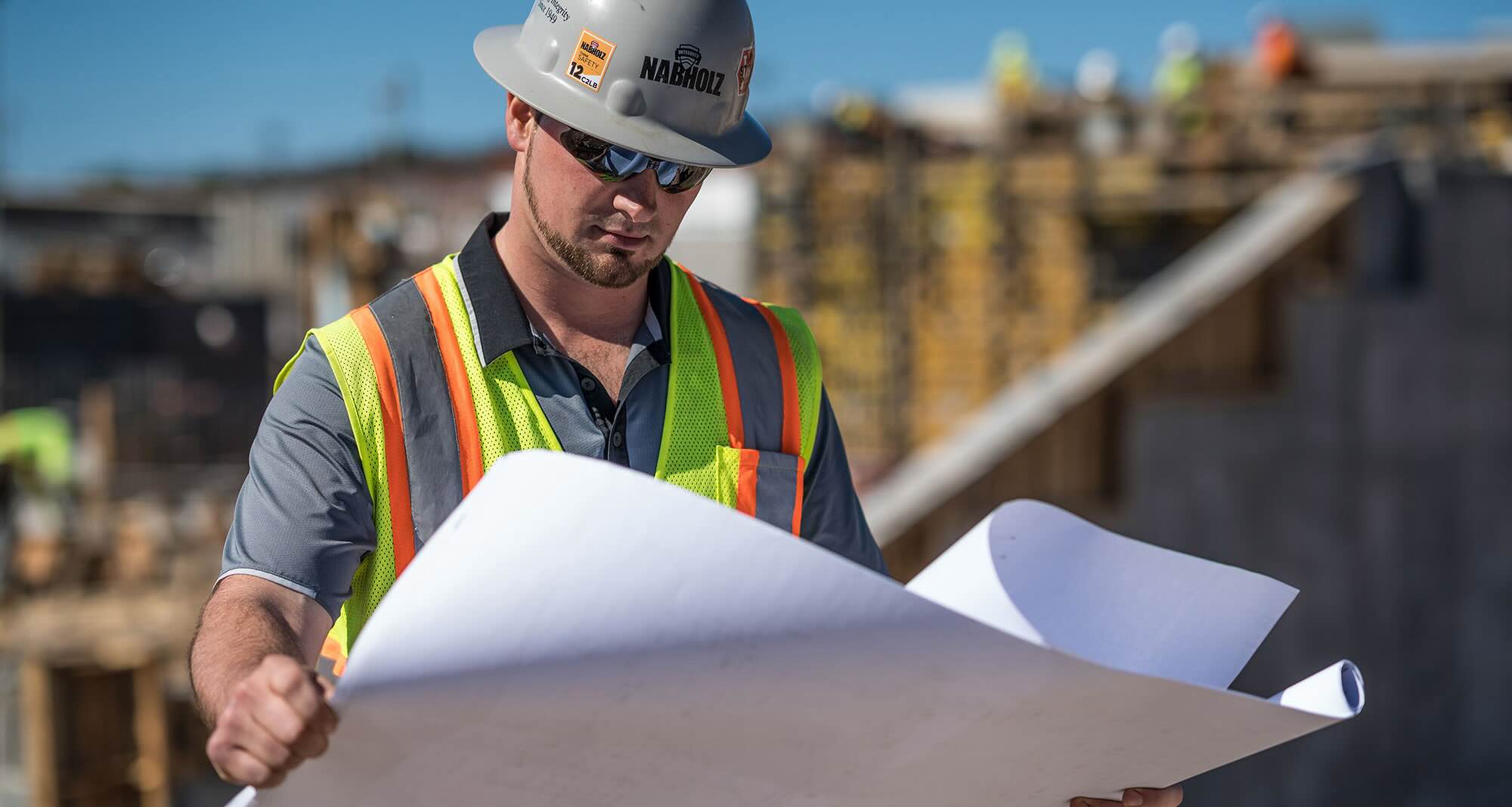
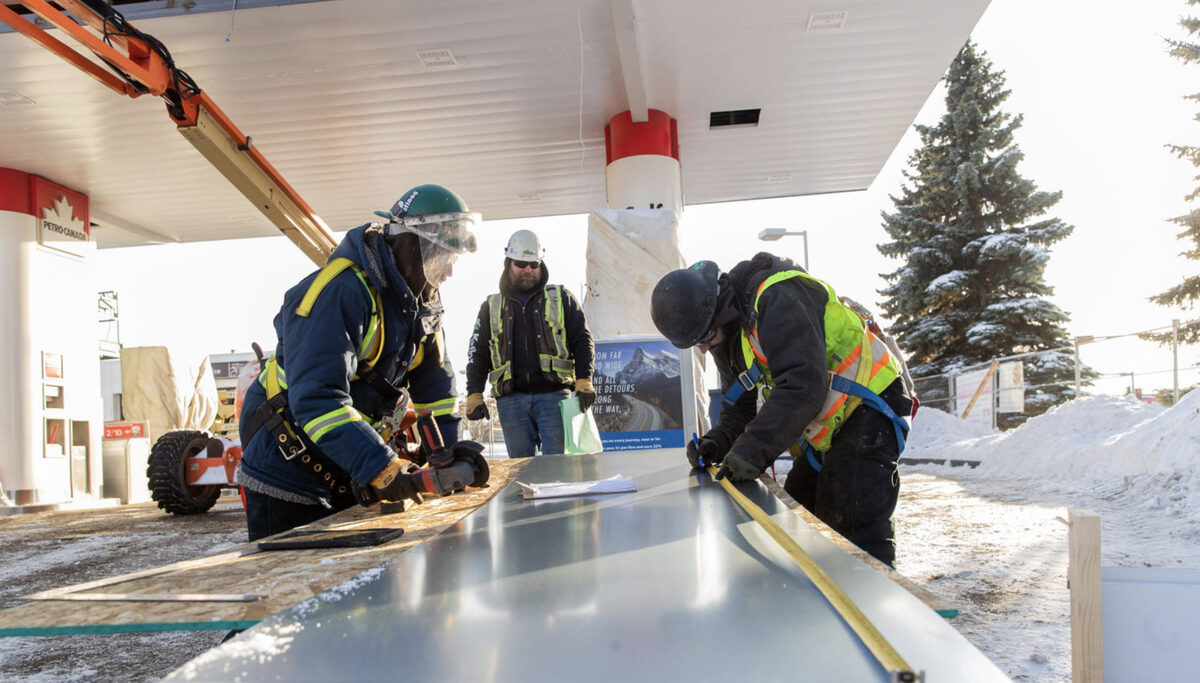


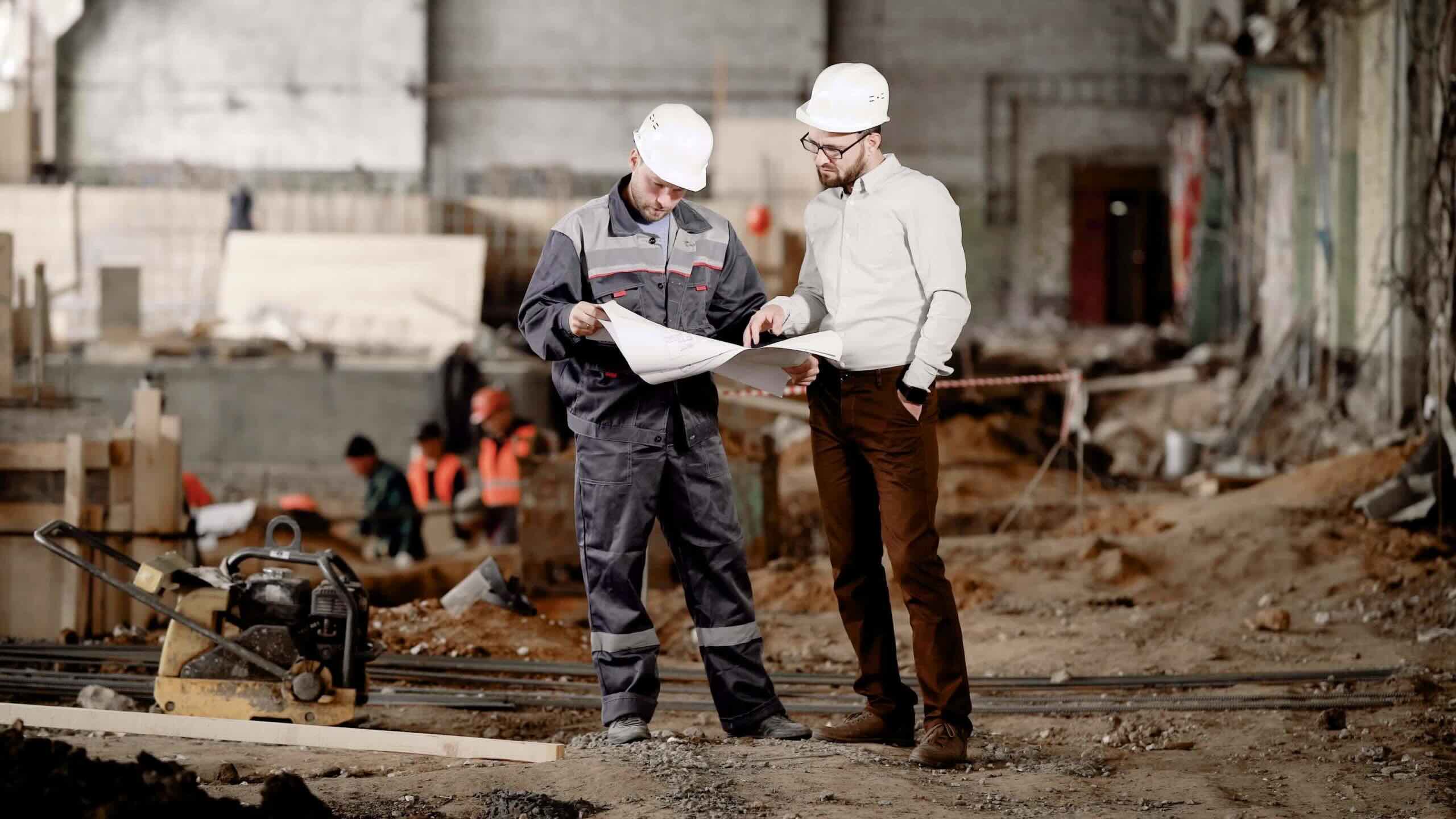





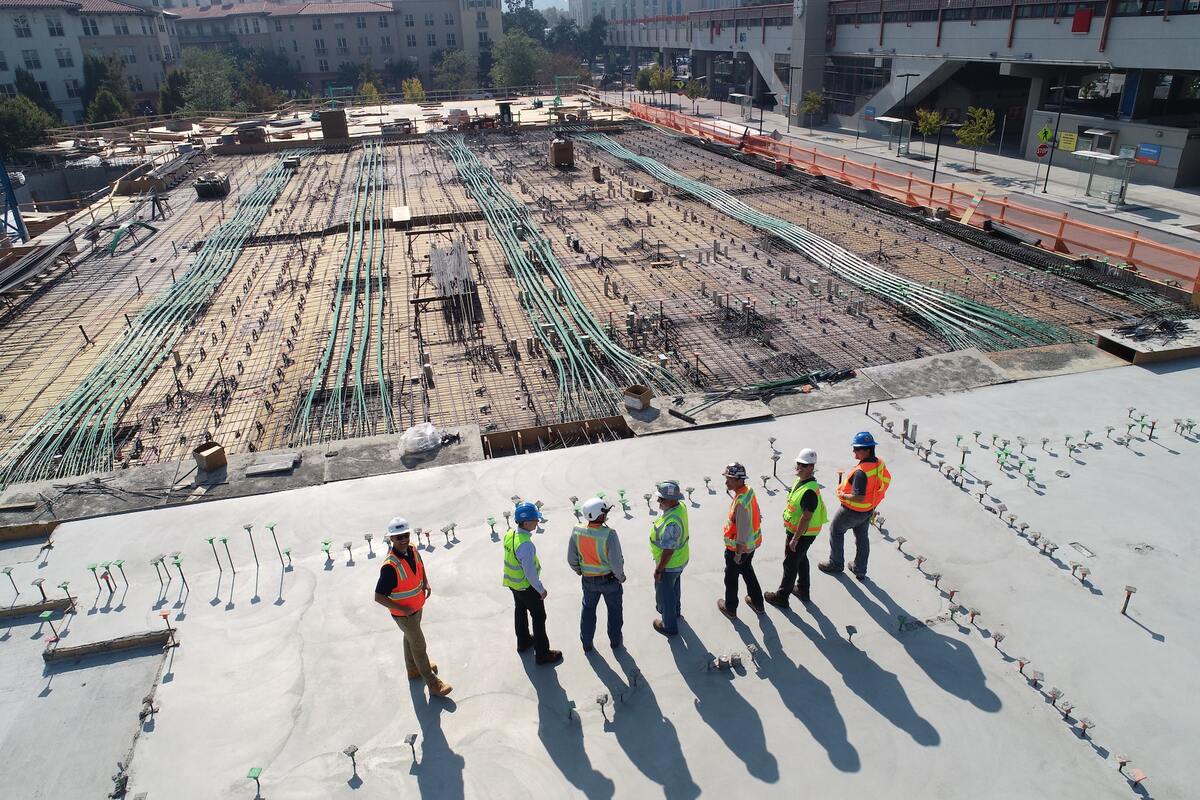



0 thoughts on “How Do You Become A Construction Superintendent”